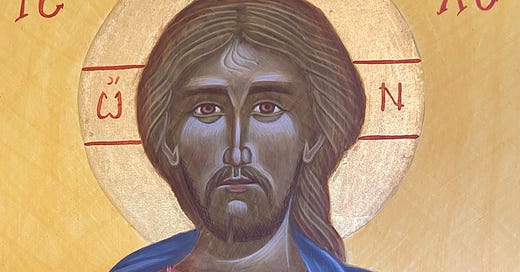Are Cardinal's Clarifications Clear?
Some Ambiguities About the Sacred Require Repentance and Retraction
Thank you to the many bishops and theologians who stood up and made their voices heard. You expressed the sense of the faith and you expressed the sense of the faithful. Hopefully, those vested with ecclesial power and authority heed what the Holy Spirit has revealed through your noble efforts. It is because of your good work that sacrilege and scandal has been avoided, and the holiness and oneness of the Church protected.
It is because of an outcry by bodies of bishops across the Church - not only among Roman Catholics but also Oriental Catholics and Orthodox that the Cardinal issued a clarification in the form of a press release about his declaration on blessings. Not all the danger is fully recognized by the Cardinal but his clarifications are in the right direction. It would have been better for him simply to retract the statement.
Hopefully those bishops who attempted to use the Cardinal’s declaration to impose on priests abominable formulae are rethinking - that is, repenting before the truth of the Gospel. Hopefully, more bishops will follow the example of those courageous shepherds who, in accord with this clarification, explained that their priests are not bound by conscience to follow the declaration. Hopefully, a new humility is stirring among those who have ecclesial power and authority to teach on blessings and regulate their use in ways that do not cause scandal and sacrilege.
The Cardinal clarifies that he intends simply a spontaneous non-liturgical blessing of persons in irregular relationships and not the sinful unions themselves, and this without a formal ritual, not before an altar. Yet, the document was very ambiguous on this — indeed, it was not clear to most other body’s of bishops that this was the intent. So it really needed to be clarified. Thank you American bishops for being among the first to come out clearly on this point.
A problem remains. As that the Cardinal also explains, beyond the traditional teaching, he was attempting to introduce an innovation. When the Cardinal purposefully advances a separation of the pastoral from the liturgical and moral meaning in the ecclesial act of blessing, he acknowledges that this is an innovation and so it needs to be carefully discerned against the tradition that he also proposes.
The relationship of an innovation to what is sacred is filled with difficult tensions. Changing vicissitudes are sanctified only as they are ordered toward a greater reality that never changes - and innovations in religious practice succumb to a spirit of the age when they do not respect this living reality. Innovation is subject to time and place, culture and circumstance - while the sacred is something in which all time, place, culture and circumstance is rooted, or uprooted, lifeless. Jesus whole work of atonement was not an innovation but a fulfillment (“I come to fulfill the Law”), and the understanding of any legitimate doctrinal development follows this pattern.
Are non-liturgical, non-ritual blessings for those in irregular (sinful) situations by a priest, (even if these are not offered in front of an altar and meet the many other criteria that he suggests needs to be met) ever really separate from morals or doctrine or liturgy of the Church? Not if they truly are ordered to conversion from sin. Re-enforcing this point is the very ritual that he invents in his clarifications. His own proposed spontaneous ritual formula for blessing those in irregular relationships without blessing the sinful union takes great pains to articulate that the gesture is meant for the conversion of those in these situations. This is consistent with the very nature of every ecclesial blessing but a contradiction to what he first proposed. At the very least, his own words concede that distinguishing a spontaneous pastoral blessing does not separate it from the other meanings every blessing has. In other words, unlike his declaration, he now clarifies that we do need to deal with, take into consideration, the morality of the situation if we are to discern the kind of blessing that needs to be given.
Does not this whole affair illustrate that any effort to separate the sacred from the moral, liturgical and dogmatic is not a Catholic way of promoting any human action, especially a priestly action? Freely human acts including priestly acts always have reference to the sacred and the sacred unifies, draws together into an organic whole all that is good, virtuous, and noble in human affairs. Thus, even when not strictly liturgical, priestly blessings in particular flow from and lead to the liturgical nonetheless - for the liturgy, the work of God carried out by the whole mystical Body, is the life-giving fount for all blessings. Flowing from this life giving fount, every Christian action is imbued with the liturgically sacred, the morally sacred and the dogmatically sacred to show forth what is one, holy, catholic and apostolic.





Thank you.